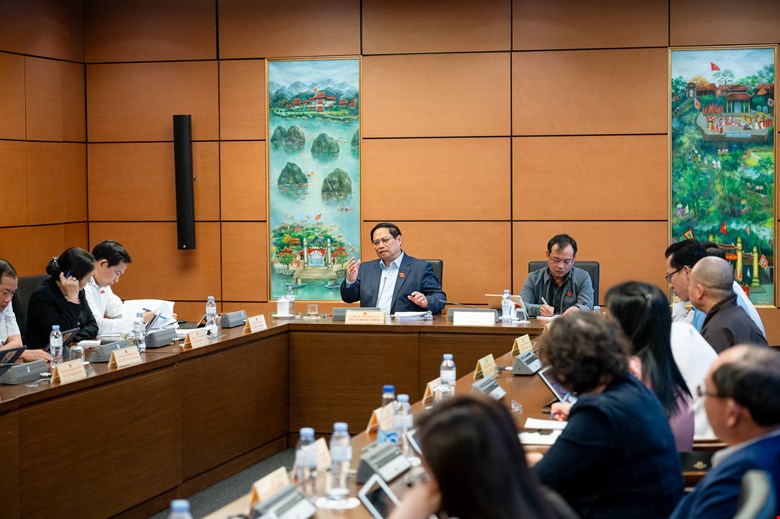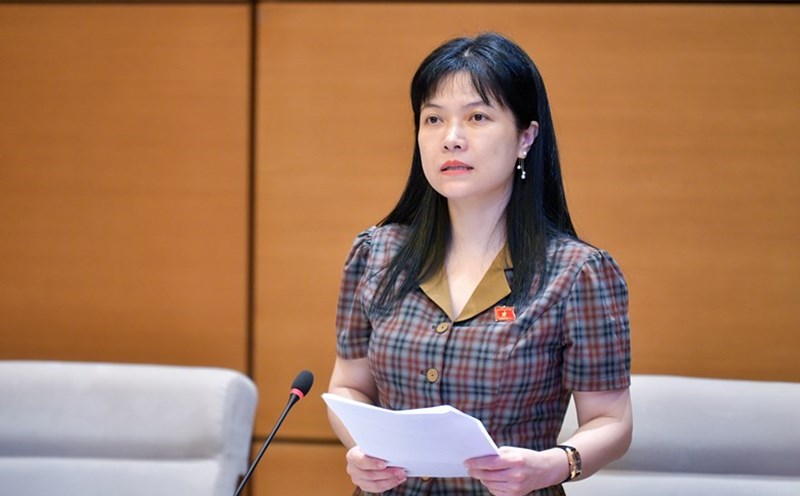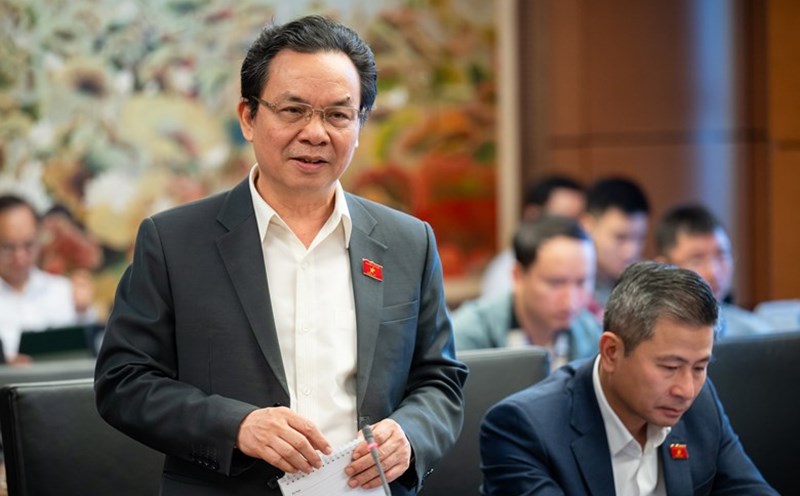On the morning of November 23, the National Assembly discussed in groups the draft Law on Digital Technology Industry.
Speaking at the meeting, Prime Minister Pham Minh Chinh emphasized that when the situation changes and tasks change, management and organization methods must also change.
The Prime Minister cited the example of the previous Law on Information Technology, which did not have digital transformation and AI intelligence like today. Later, there was cloud computing, the Internet of Things... and there were very rapid changes. The recent international conference raised many issues that must focus on managing and promoting artificial intelligence. In which, we must continue to let artificial intelligence develop but it must be managed.
According to the Prime Minister, the promulgation of this new law is necessary because digital transformation is an objective requirement, a strategic choice, a top priority in the development of the new stage and there must be laws to manage it.
The head of the Government clearly stated that we must abandon the mindset that we have to amend the law after it is enacted. "Because at that time, we thought that it was possible, we had to accept it. Yesterday, we thought that way, but now we see it differently, so we boldly amend it, it's that simple. Don't think that the law has just been promulgated and must be amended, that means we are criticizing ourselves," said the Prime Minister.
"Nowadays, everything is as real as virtual, as virtual as real. Virtual assistants are sometimes even smarter than our real assistants," said the Prime Minister.
Pointing out that artificial intelligence is very different, the Prime Minister said that virtual life is like real life now. The Prime Minister raised the issue that Bitcoin is worth nearly 3,000 billion USD in the world and in fact our country still has Bitcoin transactions, but why is it not put under management?

Government leaders believe that incentives are needed, especially in the semiconductor chip sector. Because if you want to run fast, run far, and get ahead, you have to go with this new technology and traditional and new growth drivers.
Incentives can include land, fees, clean water, electricity, construction, cash, etc. Semiconductor chip production cannot lack electricity, otherwise the product being made will break and be damaged.
Citing the need for monetary incentives, the Prime Minister said that without cash, large corporations and businesses will leave, just like Intel canceled its plan to expand chip production in Vietnam.
"If we give up the iron fish and catch the perch, they will bring in technology. If we spend 20% of the money, they will also spend 80%. Meanwhile, they will build factories and construction sites here, and they cannot take it anywhere. If we regret 20%, we will lose 80%," the Prime Minister said and suggested that incentive policies must be appropriate.
According to the Prime Minister, if they have money but we do not have incentives, they will go elsewhere. Meanwhile, our country has geographical advantages, and in terms of center, we need incentives that are convincing enough.
The Prime Minister emphasized that we must think about our national interests, but the interests must be harmonious and risks must be shared. We must put the overall interests, the national and ethnic interests above all else, not calculating specific interests.
Regarding controlled testing, the Prime Minister said that it sounds very right and very good, but if we keep our safe zone, the space for creativity will be limited.
According to the Prime Minister, time control is more important and effective than scope and object control. If we create a pilot creative space, we must expand the scope and objects of the digital technology industry. If we cannot go beyond that, there will still be a golden ring, limiting the creative space.
"If I touch your golden hoop, I will limit it like this, but if you do anything more, I will bear it," the Prime Minister said and cited that if the one-year trial is good, it will be launched and expanded. On the contrary, if the trial is not good, it will be narrowed down and stopped.
The Prime Minister proposed that the law only stipulates the framework and principles, and the rest is left to the Government, ministries, and localities to regulate in order to expand creative space and manage well.











